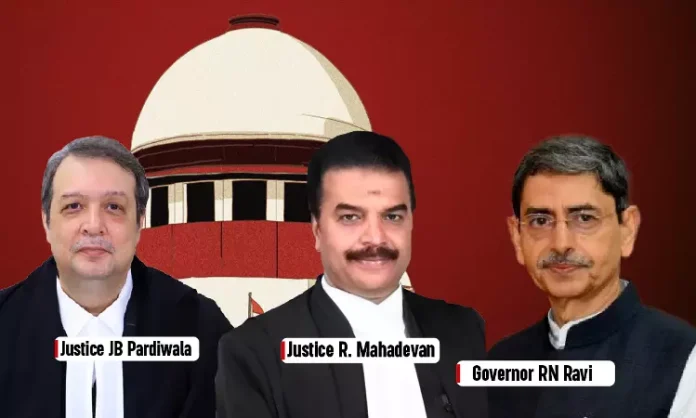In a historic verdict delivered on April 8, 2025, the Supreme Court of India significantly curtailed the discretionary powers of state Governors, reinforcing the authority of democratically elected state legislatures and upholding the constitutional federal structure.
The case was triggered by Tamil Nadu Governor R.N. Ravi’s refusal to grant assent to ten bills passed by the Tamil Nadu Assembly. After the legislature re-enacted the bills, the Governor sent them to the President for consideration—an act challenged by the state government in court.
The Supreme Court ruled that a Governor, under Article 200 of the Constitution, must either grant assent, withhold assent, or reserve the bill for the President’s consideration upon its initial presentation. However, once a bill is re-enacted by the state legislature after being withheld, the Governor is constitutionally bound to grant assent and cannot refer it to the President at that stage.
The Court strongly rejected the concept of a ‘pocket veto’—the practice of indefinitely delaying action on bills without a formal decision—which it deemed unconstitutional and contrary to democratic principles. The judgment also emphasized that such delays obstruct the legislative process and violate the spirit of representative democracy.
The ruling is being hailed as a vital move to check potential misuse of gubernatorial authority, ensuring Governors remain within constitutional limits and do not obstruct the will of elected governments. Legal experts and political observers have described the decision as a major boost for cooperative federalism and legislative supremacy in India.




